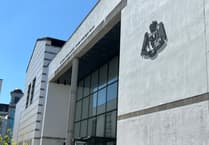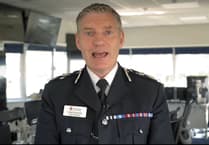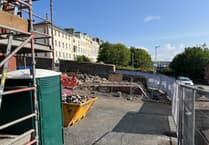An action plan to improve road safety has been drawn up by government bodies.
It comes after the first annual review of collision and casualty statistics revealed that there was a reduction in the number of fatalities, serious injuries, slight injuries and non-motorised injuries in 2020 during the first spike of the pandemic.
However, it follows a decline in the number of road traffic collisions recorded by the police in the two previous years (2018-19 and 2019-20).
Minister for Justice and Home Affairs Jane Poole-Wilson MHK said: ‘There has been a lot work over the past couple of years to improve safety on our roads for drivers, leisure users and pedestrians alike.
‘It’s encouraging that this annual report shows that overall the three-year average fell in relation to serious and slight injuries – however we are aware that this has been exaggerated by the restrictions and cancellations during the coronavirus pandemic.’
As a result of a public consultation, the Road Safety Strategic Group has undertaken steps to improve safety on roads, such as through a ‘safer routes to school’ scheme.
Chairman Dan Davies, the chief executive of the Department of Home Affairs, is the chair of the strategic group.
The report said: ‘This is a pilot using Ballakermeen High School, where a full assessment of the road engineering, layout and how the space in general is used better and more safely by everyone.
‘Similar work is being done for Arbory Primary School and the plan for both schemes is to utilise some general principles for engineering, education and awareness, but also take each individual school and surrounding area needs into consideration, so it isn’t a one-size-fits-all approach.
‘The partnership is also looking at speed issues in general and how 20mph zones may be utilised more appropriately.’
The group is now looking to the future to continue its work in achieving a 40% reduction in serious and fatal collisions.
It said the most effective ways of doing this include speed limits.
There is no national speed limit in place and analysis of the Mountain Road in particular highlighted a disproportionately high number of serious and fatal collisions over a number of years. Using data from 2016 to 2018, on this stretch of road alone, there were 117 injury collisions in total.
The report said: ‘The setting of a national speed limit is a matter for Tynwald. Consideration must also be given into the means in which speed limits can be enforced, such as static or mobile speed detection technology.’
Another way is through checking the condition of vehicles, as there are no other methods in place to ensure vehicles are fit for the road on a regular or annual basis.
The police and the Department of Infrastructure run annual campaigns, which target certain locations and vehicles are routinely stopped but these only last for a fixed period of time. However, Mr Davies argued this is also a matter for Tynwald.
The last is through motorsport events. The report added: ‘One of the unintended consequences to this is the rise in serious and fatal collisions during those periods.
‘The Road Safety Strategy and motorsports in general can sometimes be diametrically opposed to each other’s objectives but the fact we attract thousands of people and vehicles, particularly motorcycles, to the island each year significantly increases collisions and the chance of collisions.
‘The absence of motorsport events during the pandemic has already shown the aspirational reduction of 40% in the annual number of “powered-two-wheeler” road users who are injured.
‘Work may be required on reviewing speed limits, increasing enforcement activity with technology and promotion and marketing to ensure people who come to the island for the motorsport events know the island expects good standards of driving.’
Minister for Infrastructure Tim Crookall added: ‘The action plan for the strategy is progressing well, with 92% of the short term actions being completed or in progress.’




.png?width=209&height=140&crop=209:145,smart&quality=75)
Comments
This article has no comments yet. Be the first to leave a comment.